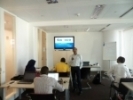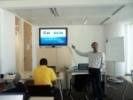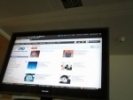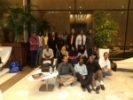Ubuntu 12.10 released: Quantal Quetzal with top 10 features

By now you’re probably aware that the good folks over at Canonical have been hard at work on Quantal Quetzal, the 12.10 release of the popular Ubuntu operating system. While dedicated users of the Linux-based platform will be well versed in the upcoming features and changes, you may be wondering what new additions have been made and whether or not it’s worth your while to upgrade from the LTS version for your daily driver. While the additions that come with Quantal aren’t earth-shattering in nature, they’re certainly intriguing enough to warrant a serious look at upgrading.
Under the hood, 12.10 will be shipping with some incremental upgrades, like the 3.5.4 Linux kernel which will be powering some Gnome 3.6 apps and libraries. While the full Gnome shell isn’t present in this build, it does still serve as the building blocks for the oft-maligned Unity interface. Whether you like it or not, Unity is here to stay as the major changes in the OS come not in the technical underpinnings, but in the way that the Unity Dash interacts with your digital content stored both locally and in the cloud.
Canonical has been taking a hard look at exactly how you and its other users have been interacting with different forms of content. If you’re like me, you have ten to fifteen different tabs open in your browser, each dialed into a different web-based service. Whether it be email, social media, or online entertainment it has become the norm for you to have most of your vital day-to-day information in the cloud.
This hasn’t gone by unnoticed by Canonical, as they have updated the Unity Dash to now search and browse content that might not be stored on your local hard drive. Built into Quantal Quetzal are several new API hooks that will search online storage services such as Google Drive like they are native to your local machine. The result being that when you type a search term into the Dash, your online documents and images will be included in the results list. In addition to Google Drive, you will be able to add your Flickr and Facebook account credentials to enrich your search capabilities for your online media.
As far as helping you to curb the amount of tabs you have to wrestle with in the browser, 12.10 now includes the ability to create an embedded desktop application out of your most-used web apps. Now instead of opening one browser tab to check your Gmail, then another to post to Facebook, and yet another to update your followers with a timely message on Twitter, you can now create clickable icons that work through Firefox to better manage your work area. Some will find this a bit redundant, but if you make use of the desktop management functionality to distribute these open windows across your work space it does become easier to locate each web app.
Mac users will find this functionality familiar as they have add access to an application for some time called Fluid that does the same thing, albeit not as a native part of OS X. When making the switch from Mac to a Windows desktop for my daily work machine, Fluid’s functionality was in my top three features that I desperately missed. Seeing Canonical make the move to include this a native part of the OS is a welcome addition.
The last bit of added functionality on the desktop side of things are the new lenses that Canonical as included to improve the visual information that is given to you when you search for certain things. For example when you are searching for music, Quantal Quetzal will now show you both free and paid options from Amazon and the Ubuntu One cloud music service. A feature that has received mixed reactions, but makes sense as a revenue stream for Canonical.
Ubuntu Server 12.10
On the server side of things, Canonical continues to focus on tools that sysadmins will appreciate when comes to constructing and deploying new boxes. Building off its recent naming as a platinum OpenStack partner, the software company has included the Folsom OpenStack release with this build, as well as Cinder and Quantum. The former being a virtual networking API and the latter being provided for block storage services.
Probably the biggest news with this update of Ubuntu Server is the ability for sysadmins that value the stability of their existing 12.04 servers to have access to these new services. Using Ubuntu Cloud Archive, the latest release features can be back-ported to 12.04 without risk of destabilizing current deployments. Definitely a smart addition by the development team at Canonical.
Both Ubuntu Desktop and Server 12.10 are available to download from the Ubuntu site for new installs. Current users can upgrade using the terminal or software update mechanism built into the platform.
For more details about the 12.10 release, hit up the Quantal Quetzal documentation.
Courtesy : ExtremeTech











